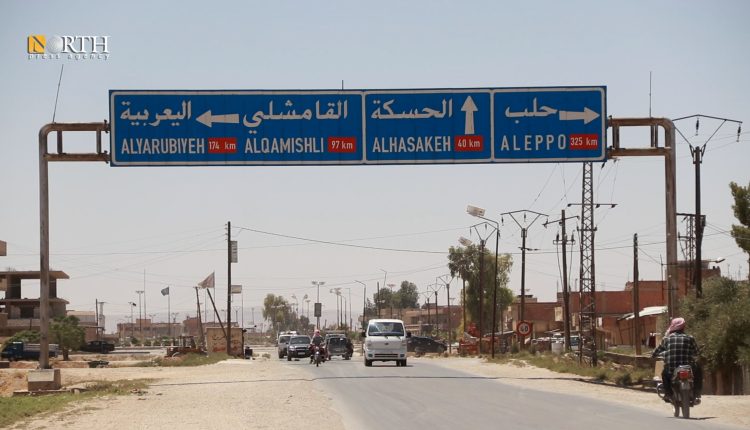By Dilsoz Youssef
HASAKAH, Syria (North Press) – “Life here is exhausting and unbearable,” says Ismail al-Hamdo, a Syrian displaced from the village of al-Shibliyah in the countryside of Sere Kaniye (Ras al-Ain) in the northern countryside of Hasakah, northeastern Syria, who has been living with his family in the Washokani displacement camp in the same area since 2019.
Al-Hamdo is one of thousands of Syrians who were forced to flee their homes following the Turkish military operation and the subsequent takeover by Turkish-backed armed factions in late 2019. Now in their sixth year of displacement, many of them remain scattered across cities and overcrowded displacement camps in northeastern Syria, enduring dire humanitarian conditions and holding on to fading hopes of return.
“We will not find peace until we are home”
Despite living just a few kilometers from his village, al-Hamdo, who now works at the Tel Tamr municipality, says, “My home is just across the M4 highway, but I cannot reach it.”
“We have been living in tents for six years,” he adds, speaking with a voice heavy with frustration. “Life has become unbearable. We want nothing more than to go home—under guarantees that will protect us.”
According to al-Hamdo, his house, like most in his hometown, was seized by families affiliated with Turkish-backed armed factions. He says the home was looted after he fled, and returning now would mean starting from scratch.
“The area is under the control of Turkish-backed armed groups,” he explains. “If we try to return, we risk being beaten or humiliated.”
Human rights and media reports over the past years have documented cases of arrest, assault, and even killings of civilians who attempted to return to Sere Kaniye and its surrounding villages.
Following the collapse of Syria’s previous regime in December 2024, many displaced Syrians—both inside the country and abroad—returned to their homes in Damascus, Aleppo, and other cities. However, displaced families from Sere Kaniye say they continue to live in uncertainty.
“Everyone has returned to their homes except us in northeastern Syria. We are still stuck in camps, with no indication that we will return anytime soon. We are exhausted. We want to go home,” al-Hamdo laments. “We will not find peace until we are home.”
“We want guarantees for our return”
Like al-Hamdo, many displaced residents say their homes were looted or destroyed, and they refuse to return unless armed factions leave the area and credible security guarantees are provided.
Yusra Ghadban, displaced from the village of Tel al-Mohammad in the Zirgan (Abu Rasin) area, says, “We will not go back unless there are clear guarantees for a safe return and the militias leave. We are afraid of being arrested or assaulted.”
“We have suffered enough,” she adds. “Our homes have been turned into rubble—except for those that were taken over and converted into military posts by Turkish forces and their allies.”
Although some displaced people now live just a short distance from their villages, they remain unable to cross the lines separating them from their homes.
“We can see our homes with our own eyes,” Yusra says with sorrow, “but we do not dare go near them. It feels like we have been expelled from the entire country, not just our village.”
Ahmad Mohammed, who was displaced from the village of al-Shirkah in the Sere Kaniye countryside, shares a similar experience. He says most of the homes in his village were looted or destroyed after the population fled.
“We want to return to our land, just like other displaced Syrians who went back to places like Damascus and Aleppo. But the road to our city is still blocked. It is our sixth year in exile—we are scattered across the Jazira region [Hasakah Governorate], and we have left everything behind.”
For al-Hamdo, Yusra, Ahmad, and thousands of others, the only path to return lies in the departure of armed groups from their towns and villages and the establishment of a secure and stable environment where they can rebuild their lives from the ground up.

